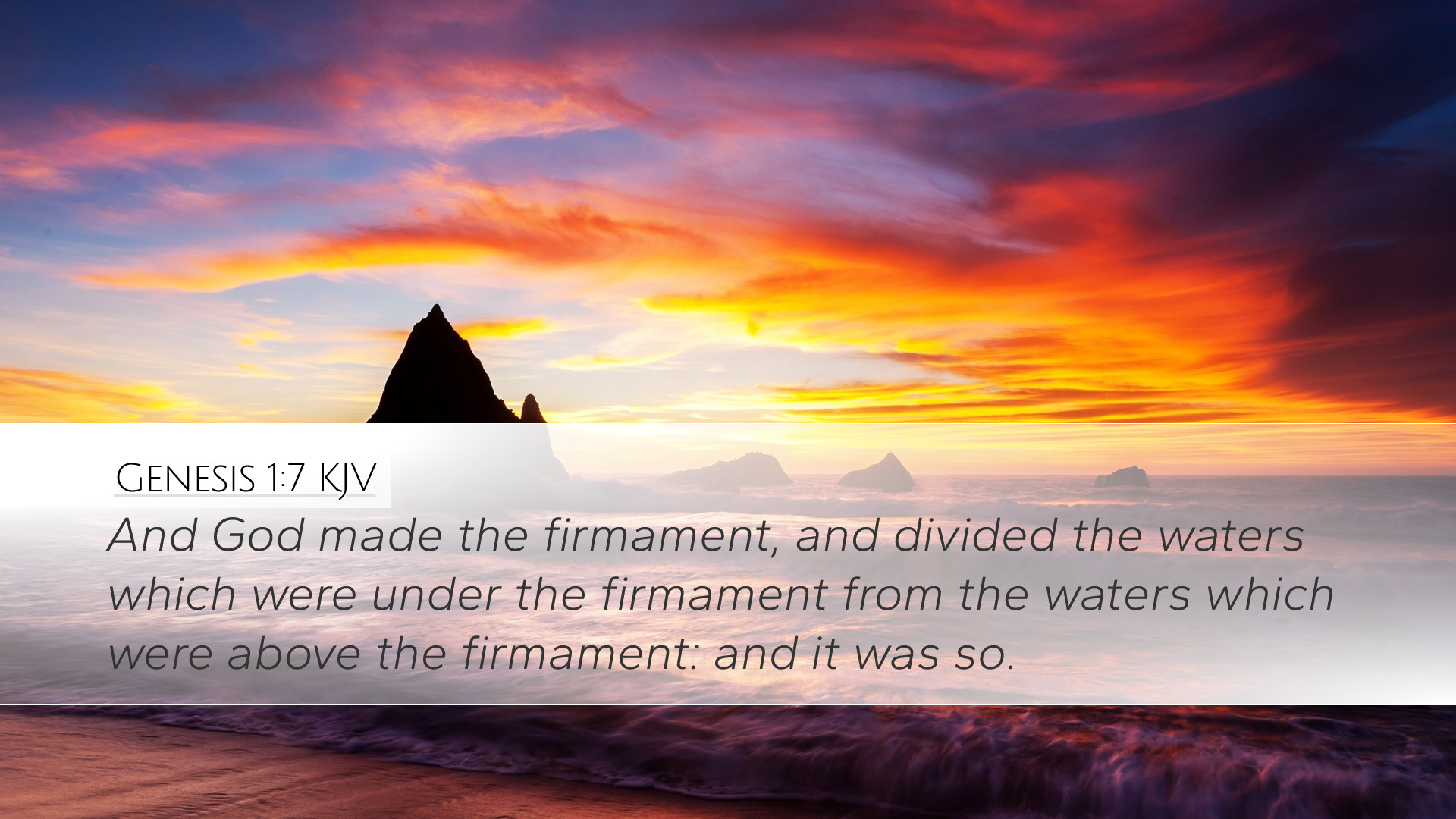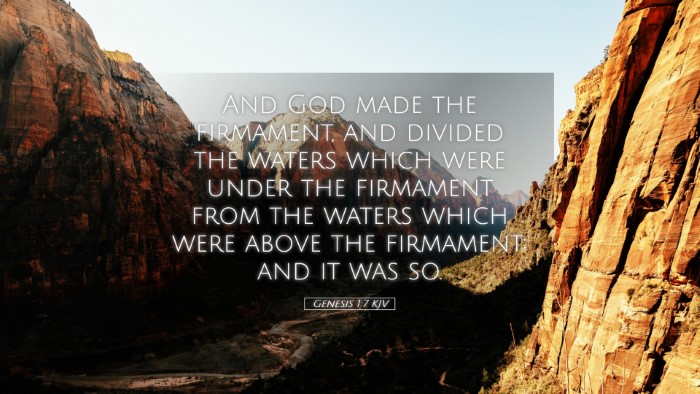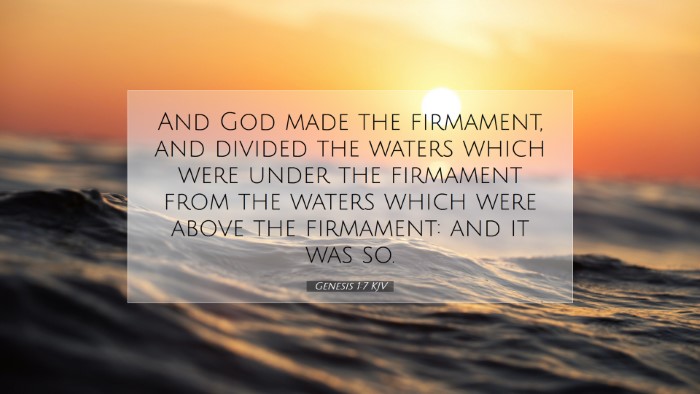Commentary on Genesis 1:7
Verse Context: Genesis 1:7 states, "And God made the firmament, and divided the waters which were under the firmament from the waters which were above the firmament: and it was so."
Introduction
This verse stands at a critical juncture within the Creation narrative, marking the establishment of the firmament—a crucial element in the cosmology presented in Genesis. The implications of this creation act extend beyond mere physical separation; they inform our understanding of God's sovereign control over the universe and the structure of creation itself.
Theological Significance
The construction of the firmament and the separation of waters has been interpreted variously by theologians throughout the ages. The firmament is often understood as a solid dome or expanse that holds back the waters above, a concept that reflects the ancient Near Eastern cosmology. This raises significant theological inquiries regarding God’s sovereignty and the established order of creation.
God's Sovereignty
Matthew Henry notes that the act of separating waters demonstrates God's supreme authority and intentionality in creation. By distinguishing between the waters below (the seas) and the waters above (the sky), God orders His creation, indicating that all elements exist under His command.
The Nature of Creation
Albert Barnes emphasizes that the term "firmament" refers to the expanse of the heavens, created to support the celestial bodies and separate the chaos of the waters. The firmament thus serves both functional and aesthetic purposes, enhancing the beauty of creation while establishing a functional boundary that reflects order.
Exegetical Insights
- Division of Waters: The act of dividing the waters is a recurring theme in scripture that symbolizes God's power over chaos. Adam Clarke suggests that this division illustrates God's ability to bring order and stability out of formlessness.
- Firmament as a Shelter: Through the creation of the firmament, God provides a shelter for life on earth, shielding it from the tumultuous forces of the chaotic waters above. This metaphor can be extended to speak of God's continual providence and protection over His creation.
Historical Perspectives
Throughout church history, the interpretation of the firmament has evolved. Ancient commentators often aligned their interpretations with prevailing scientific views of their times. In contrast, contemporary scholars may approach Genesis 1:7 with a more nuanced understanding of the text as a theological document rather than a scientific account.
Ancient Interpretations
Early Jewish writings often included mystical interpretations of the firmament. The Book of Enoch and other intertestamental literature explored the nature of the heavens and the angelic beings that reside within the firmament, suggesting a layered cosmology.
Modern Reflections
Modern theologians examine the implications of the firmament in light of contemporary cosmology. They seek to reconcile the ancient texts with scientific discovery, focusing on the theological rather than the physical dimensions of creation. For instance, the firmament can be seen as God's way of establishing relationships, which has profound implications for understanding humanity's place in the universe.
Practical Applications
- Understanding Order: In a world often characterized by chaos, Genesis 1:7 reminds believers of God's intention to impose order and structure. For pastors and theologians, this verse can serve as a basis for teachings on the role of God in maintaining peace and order in a disorderly world.
- The Firmament in Worship: Worshippers can find a richer appreciation for creation by reflecting on the firmament's significance. It serves as a reminder of the Creator's majesty and might, inviting congregations to recognize God's handiwork in the skies above.
Conclusion
Genesis 1:7 encapsulates the essence of divine creation, illustrating how God fashioned the world with purpose and intention. As believers engage with this text, they are reminded of the grandeur of God's work and the order He instils within His creation. Through public domain commentaries, we gain valuable insights that enrich our understanding and appreciation of this foundational verse in the Scriptures.


